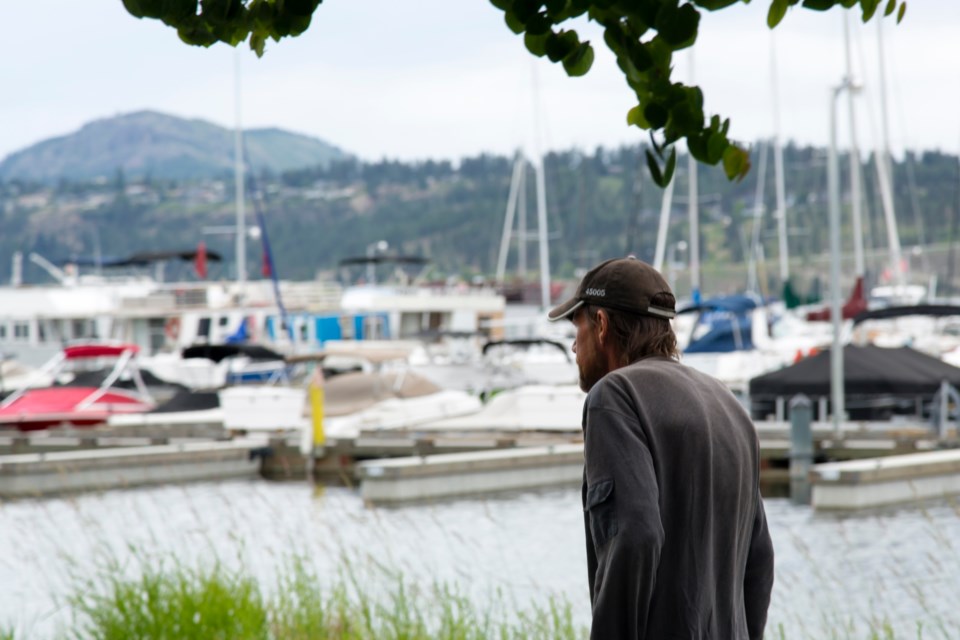For the time being, the evidence is mostly anecdotal. A strong perception in nearly every B.C. community that homelessness has soared this summer. And the question is why, and what can be done to help these people?
“At the end of the day, they didn’t get there because they wanted to be there,” says Kelowna mayor Colin Basran.
While explaining how his community has quickly become a recognized leader in dealing with homelessness, the mayor freely admits to being frustrated by comments suggesting that helping is enabling:
“For the majority of the homeless in Kelowna, these haven’t been choices, but rather something that has been inflicted upon them,” laments Basran.
"We've become a victim of our own charity."
“It’s almost as predictable as rain in spring,” says Bob Hughes, executive director of Kamloops Ask Wellness, who has also noticed a higher than usual homeless population this summer. While suggesting that possible economic opportunities draw people to larger communities such as Kamloops, Kelowna and Prince George, those best intentions often fail for a myriad of reasons, notes Hughes.
He also regrets that social services agencies can only do so much; virtually every single housing unit for the homeless in Kamloops is currently occupied.
“We have to realize that Kamloops is a hub for health services…they come here from places like Williams Lake or 100 Mile because of health issues that aren’t being addressed in their home community,” says Hughes.
In Kelowna, where about 500 folks are on a list for supportive housing, the city recently launched “The Journey Home” strategy which Basran is confident has the potential of being a national template for reducing homelessness.
“When you have federal and provincial governments that want to fund projects, they want to give to communities with a plan,” says Basran, “I’ve learned that the people living on our streets are people who have suffered some kind of trauma and they are in pain and need help.”
"The only option is hope."
The question is just how much can local governments be expected to do?
Kamloops mayor Ken Christian notes his city’s homeless population experienced a spike in 2017 when hundreds of wildfire evacuees were dispatched there. Christian agrees that big city social safety nets are attractive to people who are struggling:
“We’ve become a victim of our own charity.”
While outlining what Kamloops is doing to assist people without a regular roof over their head, Christian says senior levels of government need to step up.
“I don’t think that as taxpayers in this city, that we should be expected to accommodate the youth of Canada.”
While Basran doesn’t disagree with the frustration expressed by his Kamloops counterpart, he also contends that his and other communities have little choice in the matter:
“What is the alternative, to do nothing?”
For Bob Hughes, the general perception of homelessness isn’t reality. He argues that contrary to popular opinion, the stereotypical homeless person isn’t a drug-addicted individual living a life that he or she chooses.
“It just never ceases to amaze me, the diversity of people experiencing acute homelessness,” says Hughes, lamenting in particular the number of seniors on the street.
He urges British Columbians to consider the plight of a 63-year-old woman who worked in a hotel as a maid before losing her job as a result of serious health issues.
“The next thing you know, you’ve got an eviction notice. What do you do?”
For now, the only option for far too many is hope.
As always, I welcome your comments and criticism on Twitter @kammornanchor and email [email protected].
Bob Price is a veteran B.C. broadcaster who anchored the morning news on CHNL radio in Kamloops for the past 30 years. Bob is also a past Webster Award winner whose previous stops included Vancouver and Calgary.
SWIM ON:
- Bob Price sat down one-on-one with both Kelowna Mayor Colin Basran and Kamloops Mayor Ken Christian in December.
- To find housing solutions, we need to get past labels, says Puneet Sandhar.
- Daniel Fontaine makes a convincing case that municipalities should work together on economic development.



